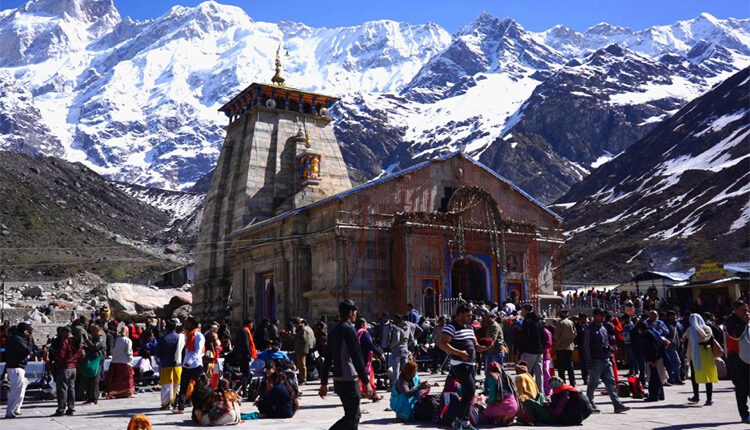Kedarnath Dham reopens for devotees on Akshay Tritiya; 6 things to know about the dham
In a highly anticipated event, the revered Kedarnath Dham, counted among the twelve sacred Jyotirlingas of Lord Shiva, commenced its pilgrimage season by opening its gates to devotees on the propitious day of Akshay Tritiya (Friday 10, 2024).
The inauguration ceremony witnessed the presence of Uttarakhand Chief Minister Pushkhar Singh Dhami, who, alongside a multitude of pilgrims from across the nation, participated in the auspicious occasion marking the end of the temple’s winter closure.
Simultaneously, the portals of Yamunotri temple, the sacred source of the Yamuna river, were also thrown open to devotees, with the doors of Gangotri temple scheduled to follow suit later in the day. The revered Badrinath Dham, often referred to as Vaikuntha (Lord Vishnu’s earthly abode), is set to welcome pilgrims from 6 AM on May 12.
Nestled at an altitude of nearly 3,500 metres above sea level, Kedarnath temple stands majestically near the Mandakini river in Rudraprayag district, Uttarakhand. The temple had closed its doors for the winter season on November 15, 2023, bidding farewell to thousands of pilgrims who had gathered for the closing ceremony.
Here are some key points to know about Kedarnath Dham:
Where is it?
Kedarnath Dham is situated in the Garhwal Himalayas of Uttarakhand, India, within the Rudraprayag district. It is perched at an altitude of approximately 3,583 metres (11,755 feet) above sea level, surrounded by towering peaks and serene natural beauty.
Spiritual significance of the site
As one of the twelve Jyotirlingas, Kedarnath holds profound spiritual significance for Hindus. It is believed that a pilgrimage to this sacred site helps one attain moksha (liberation) from the cycle of birth and death. Devotees undertake the journey to seek blessings and divine grace from Lord Shiva.
How to reach Kedarnath Dham?
Pilgrims can reach Kedarnath by trekking from Gaurikund, the last motorable point, or by availing helicopter services from nearby locations such as Phata, Guptkashi, or Sitapur. The trek from Gaurikund to Kedarnath is approximately 16 kilometres and involves a challenging ascent through picturesque mountain trails.
Legend associated with Kedarnath Dham
According to Hindu mythology, Kedarnath temple was built by the Pandavas after the Mahabharata war to atone for their sins. Legend has it that Lord Shiva, disguised as a bull, disappeared into the ground at Kedarnath, leaving behind a hump. The hump is worshipped as the lingam in the temple, symbolising Lord Shiva’s presence.
Natural beauty of Kedarnath Dham
Kedarnath is renowned for its stunning natural surroundings, including snow-capped peaks, lush green valleys, and the gushing Mandakini river. The tranquil environment, coupled with the majestic Himalayan backdrop, offers pilgrims a sense of peace and serenity during their spiritual journey.
Where to stay?
Various accommodation options are available near the temple premises, ranging from dharamshalas (guesthouses) to lodges and tents. Advance booking is advisable, especially during peak pilgrimage seasons, to ensure comfortable stay arrangements for pilgrims.


Comments are closed.